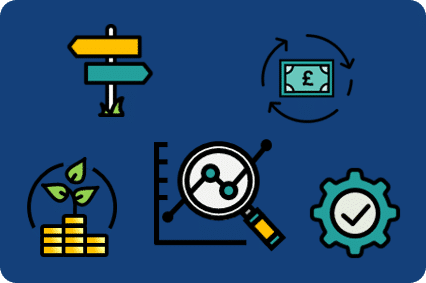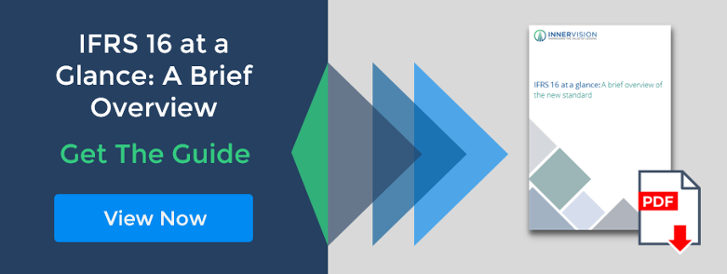The Value Management Accountants Bring To Business
Updated 26th May 2021 | 4 min read Published 14th March 2018

Management accountants play a pivotal role in business operations. They’re responsible for collecting, processing and preparing data that will help managers to make key decisions in the planning of corporate strategies.
Management accounting should not be confused with financial accounting – management accounting focuses on helping executives within the organisation make decisions, whereas financial accounting provides information to people inside and outside of the company on how business has fared to date. According to Gary Biddle, Professor and Chair of Accounting at the University of Hong Kong, “Management accounting is like the sun. It is the thing generating the energy, the results of companies. Financial accounting is more like the moon – it simply reflects them.”
According to this timeline by Kaplan University, here’s how management accounting has evolved over the years.
- 1950 – Focus was on cost determination and financial control through the use of budgets and cost accounting technologies.
- 1965 – Focus shifted to the provision of information for management planning and control, through the use of technologies such as decision analysis and responsibility accounting.
- 1985 – Emphasis was on the reduction of waste of resources used in business processes through the use of process analysis and cost management technologies.
- 1995 – Attention shifted to the generation or creation of value through the effective use of resources which examine the drivers of customer value, shareholder value, and organizational innovation.
- 2000 – Controlling inventory and distribution costs by using supply chain management.
Here are some of the advantages of having a management accountant in your organisation:
They Improve Revenue Generation
Management accountants prepare reports on profit and loss, they compare budgets, and examine your processes and procedures – by doing this, they maximise business operations.
Managers can use the information acquired from these reports to better allocate money and resources to generate the projected revenue growth. Having insight into your performance metrics, monthly cash forecasts, and revenue projections, help you to make more informed decisions and give you a better handle on your business’s financial information.
Management Accounting Helps Forecast The Future
Think of management accountants as corporate fortune tellers. They can help you answer tough questions and make important strategic decisions. Should your company invest in more equipment? Where will your company’s revenues come from? Where should you focus your marketing efforts? In this way, management accounting helps you to forecast future trends in business.
When it comes to making business decisions, it’s not safe to go with your gut feeling. Having data-driven insights ensures that you’re making accurate decisions towards continuous improvement. Management accounting utilises a range of tools and skills to forecast business trends. These include ratios, the ability to read and analyse financial statements, key performance indicators (KPIs), Management Information Systems (MIS), financial modelling, and more.
The Increase Business Efficiency
Management accountants are experts in financial reporting and control and will, therefore, prepare reports that give you clear insight into the various factors that drive business operations. This allows you to see the actual cost of your company’s day-to-day operations and gives you a better idea of your expenditure – which will essentially help you to address bottlenecks in your processes. Management accounting also uses analytical techniques to help you understand performance variances.
Data-backed Decision Making
Management accounting systems are designed to produce important information such as budgeting, product costs, performance reports, and more. Without this information, it is hard for your company to make operational and financial decisions. Management accountants use complex tools and methods for analysis, like relevant cost analysis, activity-based costing techniques and make or buy analysis. This information helps you to set targets, identify trends, and give you all the financial and non-financial information you may require.
Management Accountants Are Able To Prepare For New Lease Accounting Standards - IFRS 16
Companies will need to implement strategies and then comply with the new lease standards by January 1st, 2019. Compliance with the new standards will be more challenging without a complete understanding of your company’s processes.
Management accounting is able to maximise the use of complex tools to gather, analyse and report data in your company’s lease repository and calculate assets and liabilities. Management accountants can not only help companies comply with the new standards but can also provide increased transparency and efficiencies across the company.
And There Is Considerable Work Involved - Be Prepared
Lease accounting standards changes which will come into force as part of IFRS 16, at least for those who comply with IASB guidance, have long been kept at arm’s length due to the decade-long drafting process and complexity of changes therein.
But the time for implementation is nowhere.
If you feel that the business isn’t as ready as it could be for IFRS 16 implementation or you need a refresh on what’s involved so that you can make sure the compliance process runs smoothly, take a look at this entirely free guide:







